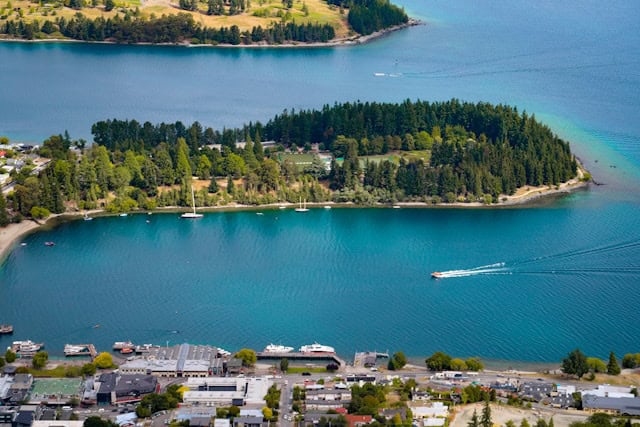Sustainable Tourism: Redefining Exotic Getaways
Tourism plays a critical role in the economies of the Caribbean. Yet, with the rising awareness about environmental conservation, the region is embracing sustainable tourism, particularly through eco-friendly resorts. These resorts blend luxury with environmental consciousness, offering travelers an indulgent yet responsible vacation experience.
The Growth of Eco-Tourism in the Caribbean
Eco-tourism is one of the fastest-growing sectors in the travel industry, with the Caribbean at the forefront. This growth is driven by the increasing demand for travel experiences that not only focus on leisure but also promote ecological conservation.
Why Eco-Friendly Resorts are Increasing in Number
There are several factors contributing to the proliferation of eco-friendly resorts in the Caribbean. Primarily, travelers are seeking experiences that align with their values, particularly concerning environmental sustainability. Additionally, governmental policies in many Caribbean nations now emphasize eco-friendly development, encouraging resorts to adopt greener practices.
The Role of Local Communities in Eco-Tourism
Local communities are integral to the success of eco-tourism. Eco-friendly resorts often employ locals, collaborate with local artisans, and source food from nearby farms, ensuring that tourism revenue benefits the community it thrives in.
Key Characteristics of Eco-Friendly Resorts
Understanding what makes a resort eco-friendly is crucial for discerning travelers who wish to minimize their carbon footprint while indulging in luxury vacations.
Adoption of Sustainable Building Practices
Eco-friendly resorts in the Caribbean utilize sustainable building practices, opting for materials that minimize environmental impact. Resorts make use of solar panels, rainwater harvesting systems, and natural materials such as bamboo and stone to reduce reliance on non-renewable resources.
Efficient Waste Management Systems
To address waste challenges, these resorts employ comprehensive waste management systems. This includes recycling programs, composting food waste, and reducing plastic usage by offering biodegradable or reusable alternatives.
Innovative Practices in Waste Reduction
Many Caribbean resorts are pioneering unique waste reduction strategies. For instance, some resorts have developed partnerships with local recycling companies to process waste sustainably. Others utilize food waste digesters to convert organic waste into bioenergy.
Integration of Local Culture and Traditions
Promoting cultural sustainability is a key objective for eco-friendly resorts. By weaving local customs and traditions into the guest experience, these resorts offer culturally immersive and enriching stays.
Traditional Design and Architecture
Resorts incorporate traditional Caribbean architectural designs, providing an authentic aesthetic experience. Thatched roofs, vibrant colors, and local artisan decor pay homage to indigenous architectural traditions.
Culinary Experiences with Local Flavor
Local cuisines take center stage in these resorts, using fresh, organic produce sourced from nearby farms to create dishes that are both exquisite and sustainable. Many resorts also offer cooking classes where guests can learn to prepare traditional dishes.
Top Eco-Friendly Resorts in the Caribbean
The Caribbean is home to numerous eco-friendly resorts, each offering unique approaches to sustainability while providing luxurious accommodations. Here are some of the noteworthy ones.
Bucuti & Tara Beach Resort, Aruba
This adults-only resort is renowned for its sustainability efforts. With initiatives like solar energy, waste reduction programs, and a focus on eco-conscious guest experiences, Bucuti & Tara highlight the symbiosis between luxury and responsibility.
Award-Winning Environmental Practices
Bucuti & Tara Beach Resort has received numerous awards for its commitment to sustainability. This includes accolades for energy conservation initiatives and efforts in reducing ecological impacts through sustainable tourism practices.
Guest Involvement in Eco Programs
Guests at Bucuti & Tara can participate in various eco-programs, such as beach clean-ups and educational seminars on sustainability. This engagement allows guests to contribute to preserving the island’s natural beauty.
Six Senses Zil Pasyon, Seychelles
While technically located in the Indian Ocean, Six Senses is a brand that operates with a strong eco-friendly ethos similar to resorts across the Caribbean. Known for their sophisticated sustainable practices, Six Senses contributes to the ideal of eco-conscious luxury tourism.
Innovative Conservation Programs
The resort’s conservation programs focus on maintaining biodiversity and protecting coral reefs. Guests are encouraged to go on guided snorkeling excursions to learn about the marine ecosystem.
Sugar Reef Bequia, St. Vincent & The Grenadines
Set in a stunning beachfront location, Sugar Reef Bequia offers an intimate, eco-conscious escape. The resort is committed to sustainability through its use of renewable energy and direct support to local farmers and artisans.
Organic Farm-to-Table Cuisine
The resort's restaurant prides itself on its farm-to-table philosophy, utilizing fresh ingredients grown on its organic farm. This not only supports local agriculture but delights guests with authentic flavors of the Caribbean.
The Benefits of Choosing Eco-Friendly Resorts
Opting for eco-friendly resorts offers numerous advantages, enhancing travel experiences while contributing positively to environmental conservation.
Reducing Environmental Impact
Staying at these resorts significantly lowers a traveler's carbon footprint. This is achieved through initiatives such as energy-efficient accommodations, reduced water usage, and the support of local-only supply chains.
Promoting Sustainable Economies
Eco-friendly resorts often emphasize local hiring and procurement, embedding themselves within the local economy. This provides economic stability and encourages other businesses to adopt sustainable practices.
Encouraging the Existence of Green Businesses
As the popularity of eco-friendly resorts grows, it incentivizes other businesses in the vicinity to go green. This can lead to wider systemic change, promoting eco-friendly practices within the broader tourism industry.
Enhancing the Traveler's Experience
Many guests find that staying in eco-friendly resorts enhances their travel experience. The adoption of nature-centric activities, coupled with the knowledge that their trip supports environmental conservation, provides a fulfilling sense of contribution along with relaxation.
Educational Opportunities
Eco-friendly resorts provide ample opportunities for learning. Through guided nature walks, workshops on sustainable practices, and participation in conservation activities, guests gain insights into the environmental and cultural challenges and efforts within the Caribbean.
Conservation and Preserving Natural Heritage
Eco-friendly resorts are often committed to the conservation of the natural landscapes they occupy. This means guests can enjoy pristine, unspoiled locations, adding to the allure and allure of their stay.
Protecting Marine and Wildlife Sanctuaries
Dive and snorkel trips led by local marine biologists are common, offering guests a firsthand look at conservation efforts and the chance to witness diverse marine life while ensuring minimal human impact on these sensitive environments.
Trailblazing Efforts in Sustainable Management
The sustained focus on sustainability supports the Caribbean's efforts to maintain its unique environments. Through resource management and eco-sensitive practices, these resorts serve as role models for how luxury tourism can marry with environmental responsibility.
Future Trends in Caribbean Eco-Tourism
The trajectory of sustainable tourism in the Caribbean is promising, with several trends indicating a continued commitment to environmental stewardship.
Increased Use of Renewable Energy Resources
The transition to renewable energy sources is expected to intensify, with resorts increasingly adopting solar panels, wind turbines, and bioenergy as primary sources of power.
Innovative Solutions to Reduce Carbon Footprints
Future resorts are poised to employ cutting-edge technologies to lower their carbon footprints. Expect to see increased use of smart technology to optimize energy use and reduce waste.
Enhanced Green Certification Processes
As more resorts seek green certifications, such as LEED and Green Globe, the certification processes are likely to become more stringent and comprehensive, setting a higher standard for sustainability practices.
Consumer Demand Driving Eco-Certification
Travelers’ preference for sustainable options will push more resorts to achieve or improve eco-certification, ensuring that the sustainable promises advertised are faithfully implemented.
Focus on Holistic Wellness Tourism
With growing interest in wellness travel, eco-friendly resorts are set to integrate holistic health and wellness programs. Emphasizing both environmental sustainability and personal well-being, these offerings are expected to grow in popularity.
Mindfulness and Eco-Conscious Living Retreats
Retreats focusing on mindfulness and eco-conscious living are anticipated to increase, providing guests with the chance to focus on holistic well-being within a sustainability framework.
Challenges and Opportunities
While the rise of eco-friendly resorts is encouraging, the journey holds challenges that must be navigated to achieve long-term success.
Sustainable Supply Chain Management
Establishing and maintaining a sustainable supply chain can be challenging, given the varied infrastructural gaps in some Caribbean regions.
Local Sourcing and Global Standards
Balancing local sourcing with global sustainability standards is crucial. By developing strong local partnerships, resorts can ensure that they adhere to international sustainability criteria.
Overcoming Economic and Political Obstacles
Economic and political barriers can sometimes hinder the adoption of eco-friendly practices. Addressing these obstacles through policy advocacy and incentives is essential for enhancing sustainable tourism.
Supporting Policy Development
Collaboration with policy makers to develop eco-friendly governance frameworks can accelerate the adoption of sustainable practices throughout the Caribbean.
Educational Outreach and Community Engagement
Ensuring widespread understanding and engagement with eco-tourism principles among both tourists and local communities is an ongoing challenge and opportunity.
Building Awareness and Involvement
Through continued education and community engagement initiatives, resorts can expand awareness of sustainable practices and encourage active participation from guests and locals alike.
By continuously innovating and adapting to new sustainability challenges, the Caribbean’s eco-friendly resorts can help lead the way towards a more sustainable and responsible tourism future.































